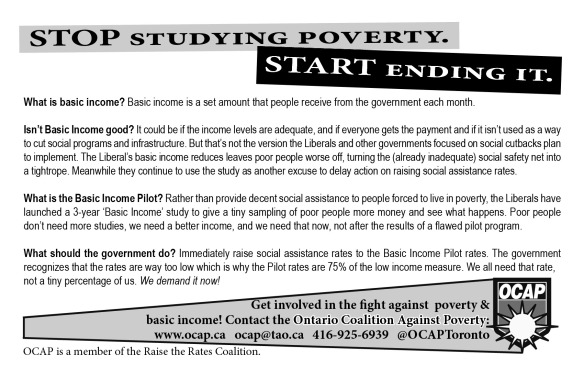
Many of you have been a part of the struggle to change the discriminatory policies underlying the Housing Stabilization Fund (HSF). To-date we have written two reports (accessible here and here) documenting in detail the issues with the HSF and its management. The outrage sparked by Laura Bardeau‘s case and the subsequent mobilization led to series of changes being announced by the City in December last year. Some of these changes were implemented immediately, such as the abandoning of the discriminatory eligibility formula, whereas others, we were promised, would be designed in consultation with us and other community advocates and legal clinics.
The consultation did not happen and instead TESS merely notified us, by way of a poorly organized ‘information session’ on June 28, of the changes it had already designed and which would go into effect a mere 3 business days later (on July 4). Now a coalition of 18 organizations, OCAP included, have penned an open letter to the Mayor and members of the Community Development and Recreation Committee outlining the issues with the changes and the resolutions we are seeking. The letter appears below.
OCAP has also prepared our own assessment of all the changes to the HSF. You can download it here.
Continue reading


